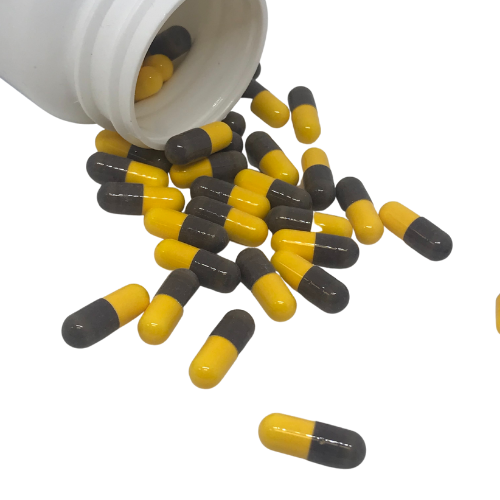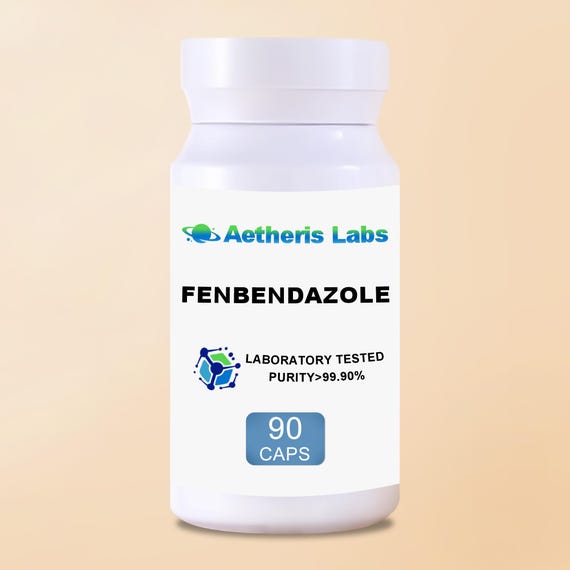fenbendazole: Its Role in Animal Welfare In Practice
Discovering the Devices Behind Fenbendazole and Its Effect On Pet Health And Wellness
Fenbendazole is a widely utilized anthelmintic recognized for its performance versus different parasites. Its key device involves the inhibition of microtubule development, which interrupts vital processes in these microorganisms. Beyond its antiparasitic properties, fenbendazole likewise shows up to improve immune actions and has anti-inflammatory benefits. Recognizing these diverse impacts could disclose new applications for pet health. Questions remain concerning its full capacity and safety and security profile.
The Pharmacokinetics of Fenbendazole
The pharmacokinetics of fenbendazole, a commonly utilized anthelmintic in vet medication, involves the study of its absorption, distribution, metabolic rate, and discharging within pet systems. After management, fenbendazole is swiftly absorbed from the intestinal tract, with peak plasma concentrations happening within hours. Its circulation is affected by variables such as cells binding and lipid solubility, permitting it to pass through different tissues efficiently. The medication undergoes comprehensive metabolic rate primarily in the liver, where it is exchanged active and inactive metabolites. These metabolites play a function in the medication's overall efficiency and safety and security profile. Excretion takes place mostly through feces, with a smaller sized percentage eliminated via pee. The half-life of fenbendazole varies amongst types, which affects dosing regimens. Understanding these pharmacokinetic buildings is crucial for maximizing its restorative usage and ensuring reliable parasite control in veterinary practices.
Devices of Activity Against Parasites
Fenbendazole applies its antiparasitic effects mostly through the inhibition of microtubule formation in bloodsuckers. This interruption influences their structural integrity and mobile features, causing impaired basal metabolism. As an outcome, the medicine successfully compromises the survival and reproduction of numerous parasitic microorganisms.
Inhibition of Microtubule Development
Restraint of microtubule formation stands for a critical device where certain anthelmintic representatives, including fenbendazole, apply their impacts on parasites. Fenbendazole binds to tubulin, a healthy protein that develops microtubules, disrupting the polymerization procedure required for microtubule assembly. This disturbance hinders essential mobile functions, consisting of mitosis, intracellular transportation, and structural integrity. As microtubules play an essential role in keeping the shape and feature of parasitical cells, their inhibition brings about cell cycle arrest and ultimate fatality of the parasite. This system is particularly efficient versus nematodes, as their reliance on microtubules for flexibility and nutrient absorption makes them susceptible to fenbendazole. The inhibition of microtubule development is a vital element of fenbendazole's restorative effectiveness in veterinary medicine.
Disruption of Basal Metabolism
Interrupting basal metabolism is another crucial mechanism through which fenbendazole targets parasitical organisms. This anthelmintic changes the energy manufacturing pathways within bloodsuckers, primarily influencing their capacity to create adenosine triphosphate (ATP) By inhibiting glucose uptake and disrupting mitochondrial function, fenbendazole limitations the energy resources vital for the survival and reproduction of these organisms. As an outcome, parasites become increasingly vulnerable to environmental tensions and immune feedbacks. Furthermore, the interference in energy metabolic process not just impacts the parasites directly yet likewise minimizes their capacity to assimilate nutrients, further impairing their development. On the whole, the interruption of basal metabolism represents a fundamental element of fenbendazole's effectiveness against numerous parasitic infections, adding greatly to boosted pet wellness results
Prospective Side Results and Safety And Security Profile
The possible adverse effects and safety account of fenbendazole warrant mindful consideration, especially in vet applications. While typically considered secure, some animals might experience unfavorable responses, including gastrointestinal disturbances such as vomiting and looseness of the bowels. In addition, neurological symptoms, although unusual, have actually been reported in delicate individuals, highlighting the requirement for tracking throughout therapy.

Fenbendazole's safety in different types, including pets and pet cats, has been recorded, yet dosage and period of therapy must be carefully handled to lessen threats. Pregnant or lactating animals may also require special attention, as the impacts on establishing fetuses or nursing children are not completely understood.
Routine veterinary examinations can aid minimize possible negative effects and assure the drug is carried out suitably. As a result, while fenbendazole is a reliable anthelmintic representative, alertness concerning its side effects is crucial for keeping pet health.

Fenbendazole's Impact on Immune Function
Fenbendazole has actually been noted for its possible to modulate body immune system feedbacks in pets. Its anti-inflammatory properties might add to improved immune function, giving a twin benefit in managing health (fenbendazole). Comprehending these effects is vital for assessing fenbendazole's role in vet medication
Immune System Modulation

Anti-inflammatory Residences
Anti-inflammatory impacts stand for a significant aspect of fenbendazole's influence on immune function. Research indicates that fenbendazole might minimize the manufacturing of pro-inflammatory cytokines, which are crucial in mediating inflammatory responses. By modulating these cytokines, fenbendazole can possibly ease inflammation-related problems in pets. This anti-inflammatory action not only help in taking care of symptoms connected with various diseases but additionally boosts total body immune system effectiveness. Furthermore, its capability to promote a balanced immune response helps avoid too much inflammatory damage, which can result in persistent health and wellness concerns. Fenbendazole's role in swelling management highlights its importance in vet medication, supplying a twin advantage of antiparasitic action and immune system support for pet health.
Applications Beyond Conventional Parasitical Infections
While mostly recognized for its performance against various parasitical infections, fenbendazole has actually gathered attention for prospective applications beyond this traditional range. Recent research studies suggest that fenbendazole may have advantageous results on cellular wellness and immune action, making it an appealing prospect for handling other health and wellness problems in animals. Its reported anti-inflammatory properties might go to the website offer alleviation for animals suffering from persistent inflammatory conditions. Additionally, some research study suggests that fenbendazole can play a function in sustaining the total wellness of pets by enhancing nutrient absorption and intestinal health and wellness. Its possible as an adjunct treatment in cancer therapy has actually sparked interest, as initial searchings for suggest it might prevent growth cell development in certain contexts. These diverse applications highlight fenbendazole's flexibility, motivating further exploration into its complex advantages for pet health and wellness past its standard usage as a deworming agent.
Future Study Directions and Ramifications for Pet Health
The expedition of fenbendazole's potential applications has actually opened up brand-new avenues for research study intended at enhancing animal health and wellness. Future studies can concentrate on its effectiveness against a broader variety of virus, including microorganisms and infections, thus increasing its role in vet medication. The implications of fenbendazole's devices, such as its effect on immune modulation, warrant further examination to understand exactly how it can bolster total health in various types.
Additionally, study might discover optimal dosages and formulations to make the most of efficacy while minimizing possible side impacts. Examining fenbendazole's synergistic results with other medications could lead to a lot more effective treatment procedures. Longitudinal researches evaluating long-lasting results in animals treated with fenbendazole can provide valuable understandings right into its security and performance. Generally, the ongoing exploration of fenbendazole supplies promising potential to improve animal health news and wellness, requiring a joint strategy amongst researchers, veterinarians, and pharmaceutical programmers to assist in developments in this area.
Often Asked Concerns
Can Fenbendazole Be Utilized in Animals for Parasite Avoidance?
The question of whether fenbendazole can be utilized in animals for bloodsucker avoidance matters, as producers seek effective therapies (fenbendazole capsules). Research shows it might supply advantages, yet appropriate guidelines and vet recommendations are vital for secure use
What Is the Suggested Dose of Fenbendazole for Various Pets?

Are There Any Known Drug Interactions With Fenbendazole?
Current knowledge indicates that fenbendazole might engage with certain medicines, possibly influencing their effectiveness or metabolic process. Vet professionals advise seeking advice from a vet to examine private pet cases and figure out any type of possible interactions before management.
Exactly How Does Fenbendazole Compare to Other Antiparasitic Medicines?
Fenbendazole is usually contrasted to other antiparasitic medicines based on efficiency, spectrum of task, and security profiles. It is favored for its performance against a broad range of bloodsuckers while usually displaying marginal adverse effects in animals.
Is Fenbendazole Effective Against Viral or Microbial Infections in Pets?
The effectiveness of fenbendazole versus viral or microbial infections in animals stays unproven. Research largely concentrates on its antiparasitic residential properties, with restricted proof sustaining any type of duty in treating non-parasitic infections in veterinary medication.